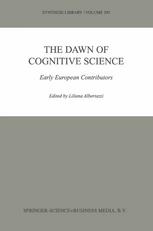

Most ebook files are in PDF format, so you can easily read them using various software such as Foxit Reader or directly on the Google Chrome browser.
Some ebook files are released by publishers in other formats such as .awz, .mobi, .epub, .fb2, etc. You may need to install specific software to read these formats on mobile/PC, such as Calibre.
Please read the tutorial at this link: https://ebookbell.com/faq
We offer FREE conversion to the popular formats you request; however, this may take some time. Therefore, right after payment, please email us, and we will try to provide the service as quickly as possible.
For some exceptional file formats or broken links (if any), please refrain from opening any disputes. Instead, email us first, and we will try to assist within a maximum of 6 hours.
EbookBell Team

0.0
0 reviewsCurrent debate in cognitive science, from robotics to analysis of vision, deals with problems like the perception of form, the structure and formation of mental images and their modelling, the ecological development of artificial intelligence, and cognitive analysis of natural language. It focuses in particular on the presence of a hierarchy of intellectual constructions in different formats of representation.
These diverse approaches, which share a common assumption of the inner nature of representation, call for a new epistemology - even a new psychophysics - based on a theory of reference which is intrinsically cognitive. As a contribution to contemporary research, the reading presents the core of theories developed in Central Europe between the late nineteenth and early twentieth centuries by philosophers, physicists, psychologists and semanticists who shared a dynamic approach and a pronounced concern with problems of interaction and dependence. These theories offer innovative solutions to some of the epistemological and philosophical problems currently at the centre of debate, like part-whole, theory of relations, and conceptual and linguistic categorization.